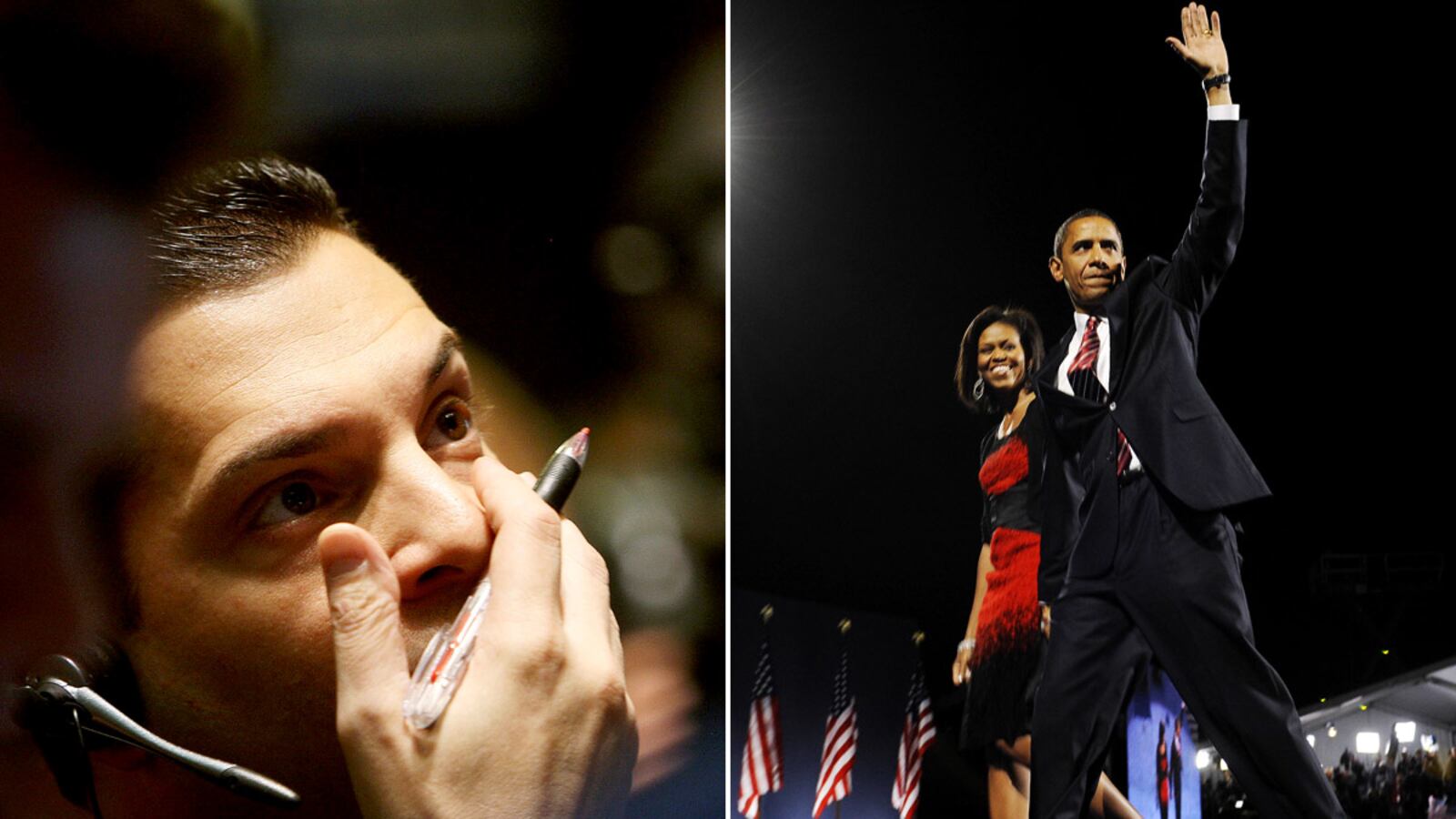“Two things are required for Obama to be reelected,” asserted Eli Attie, former writer and producer of The West Wing, and Vice President Al Gore’s chief White House speechwriter. “One is for the Republicans to continue being as bumbling and incompetent as they’ve been, and the other is for him to successfully get people to grade him on a curve. I think that this video launched right into the second of these two things.”
Attie was referring to the much talked about, impeccably produced, 17-minute video released by the Obama campaign Thursday night. The film, titled The Road We’ve Traveled, was directed by Davis Guggenheim, the documentary filmmaker who won an Oscar for An Inconvenient Truth in 2006 and received wide acclaim for Waiting for Superman, a documentary about the failure of the U.S. education system.
When I spoke to him from his office in Los Angeles—where he’s currently working on the hit TV series House—the speechwriter-turned-television-writer-producer couldn’t have been more certain of his reaction to the film: “I think that the movie was extremely well done. It shows you what narrative the Obama campaign and the White House is trying to push—to remind people of the context in which this presidency should be judged.”
The film opens on slow-motion scenes of Obama and his family on stage at his 2008 victory celebration in Chicago. The soundtrack is uncharacteristically somber—more buyer’s remorse than historic victory.
Tom Hanks, the film’s narrator, asks, “What do we remember of November, 2008? Was it this moment?" We see a series of shots of crowds cheering.
“Or this?”

The film then suddenly cuts to dire news footage from the economic crisis. A financial commentator reports: “Watching the Dow industrial average has been like watching the heart monitor on a critically ill patient.”
Attie approved of the film’s opening. “I was impressed how within the first ten seconds it basically said we are in a rotten economy. It didn’t mince around trying to conjure some sense of nostalgia for the mood and feeling for the 2008 campaign—those things wouldn’t work now. People don’t feel celebratory.”
The video—referred to by the campaign as a documentary and by everyone else as either docu-ganda, docu-advertising, or a 17-minute infomercial—takes the form of a classic documentary, primarily featuring a series of talking heads—including former president Bill Clinton, Michelle Obama, Vice President Joe Biden, former chief of staff Rahm Emanuel, and former senior White House adviser David Axelrod—intercut with a B-roll of archive footage and iconic photographic stills.
The result is both poetic and, fact-checking aside, informative. And, according to Attie, in just the right proportions. “I think Davis Guggenheim has a good eye for how to strike the right balance between gritty and gauzy—finding an argument that sells and that’s also a little stirring. Too much of the stirring,” he added, showing his experience in both politics and Hollywood, “and you just don’t buy it.”
Taking advantage of its long format, the film takes as much time as it needs to explain Obama’s achievements during his first term in light of the circumstances within which he inherited his presidency. It covers every topic from the financial crisis to the Recovery Act to the Detroit auto bailouts to health-care reform to the raid on Osama bin Laden's compound and more. “I think that they hit all the things that there are to be hit,” Attie concluded.
The film addresses how to “contextualize a presidency given all the horrible things that are going on in the country and the world,” the writer went on to explain. “What [the campaign has] to do is to show what Obama has achieved relative to what he inherited … show that these forces are much larger than him.”
“If [voters] feel that Barack Obama is 100 percent responsible for 8.1 percent unemployment, it’s hard to see how he lives.”
Even though I agreed with Attie’s point of view, I confessed to him that at certain times during my viewing of the film, I felt as though I was watching a DVD extra to a feature about the Obama presidency. And I wondered whether the ubiquity of shows like The West Wing—and shows about the making of shows like The West Wing—might have somewhat compromised the film’s power.
“It might be the case that lots of political fiction makes us immune to certain musical cues and things like that,” Attie was ready to admit. “But it’s been a while. The West Wing has been off the air for six years now and I hope it hasn’t eliminated our ability to be inspired by the real thing.”
So far, the film has attracted more than 600,000 viewers on YouTube. And, according to Attie, we can expect that number to increase exponentially: “I’ll bet if you check back in a week, and then in four weeks, and then in eight weeks, the thing is going to have millions of hits.”






